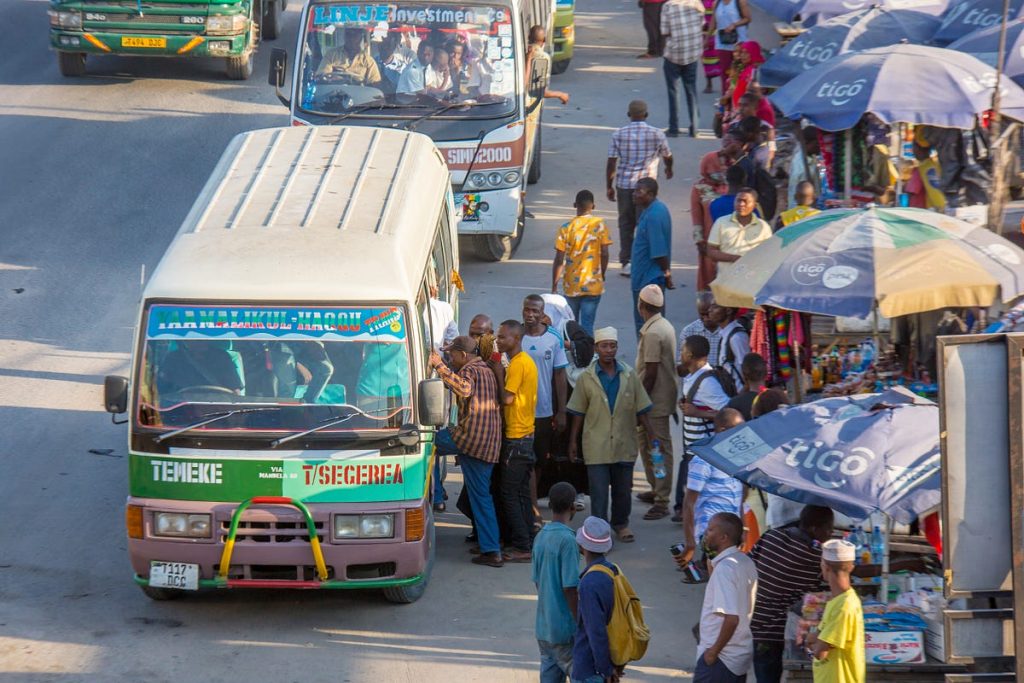In a move that underscores Tanzania’s commitment to modernizing its transportation sector, the Land and Transportation Agency (LATRA) will soon seek to mandate online ticketing services for upcountry commuter buses, commonly known as “daladala.” This initiative follows the enforcement for upcountry buses, which took effect on July 1st, 2022, and has since aimed to streamline the ticketing processes, enhance passenger convenience, and drive efficiency in the country’s transportation network.
Implementing online ticketing for inter-city commuter buses represents a significant step forward in Tanzania’s transportation sector. By embracing digital solutions, LATRA is aligning with global trends and addressing key challenges the country’s transportation system faces.
One of the primary beneficiaries of this initiative is the passenger experience. By enabling passengers to book tickets online, LATRA provides greater convenience and flexibility. Commuters will no longer have to endure long queues or the uncertainty of securing a seat or, rather, scramble to get one. Instead, they can book their tickets from the comfort of their homes or offices using their mobile phones or computers.
Moreover, implementing online ticketing can potentially improve the overall efficiency of Tanzania’s transportation network. By digitizing the ticketing process, LATRA can gain valuable insights into passenger demand patterns, which can be used to optimize routes and schedules. This, in turn, can lead to reduced congestion, shorter travel times, and a more pleasant overall commuting experience for passengers.
The shift to online ticketing presents challenges and opportunities for bus operators. While some operators may initially struggle to adapt to the new system, those embracing it benefit significantly. Online ticketing can help bus operators improve operational efficiency, reduce costs, and increase revenue. It also opens up new marketing opportunities, allowing operators to reach a wider audience of potential passengers.
Read Related: LATRA Should Consider Second Thoughts; Low-Income Citizens Are the Ones Suffering
From a technological standpoint, Tanzania is well-positioned to support the transition to online ticketing. As of June 2023, the country had over 47.2 million subscribers on mobile money networks such as Tigo, Airtel, Vodacom, and Halotel. The country has a robust digital infrastructure, which makes the deployment of online ticketing systems for inter-city commuters feasible and practical.
In this regard, companies like Otapp, which already has a dominion of over 1200 bus units of over 7000 existing bus units in Tanzania, are poised to play a pivotal role. As a leading provider of online ticketing solutions, Otapp has the experience and expertise to help bus operators make a seamless transition to digital ticketing. By partnering with vendors like Otapp, LATRA can ensure the successful implementation of online ticketing across the country.
What About Environmental Sustainability?
Digital ticketing can contribute significantly to environmental sustainability by reducing the use of paper tickets. Paper ticket production requires the consumption of natural resources like trees and water, as well as energy for processing and transportation. By eliminating the need for paper tickets, digital ticketing helps conserve these resources and reduces the environmental impact associated with paper production.
Moreover, the disposal of paper tickets contributes to waste accumulation in landfills, leading to environmental pollution. Digital tickets, on the other hand, are stored electronically and do not generate physical waste. This reduction in paper waste helps lower carbon footprints by reducing the need for waste disposal and the associated greenhouse gas emissions.
The systems often integrate with mobile devices, reducing the need for printed tickets and physical travel documents. This further reduces paper usage and promotes environmental sustainability.
Public Awareness is Crucial
Public awareness campaigns can play a crucial role in successfully implementing online ticketing systems for commuter buses. These campaigns are essential for educating commuters about the benefits of online ticketing and how to use the new system effectively.
One of the key benefits of online ticketing is convenience. Commuters can book their tickets from anywhere, anytime, using their mobile phones or computers. They no longer have to wait in long queues or worry about getting a seat on the bus. Public awareness campaigns can highlight these benefits and encourage commuters to embrace the new system.
Digital tickets are less prone to loss or theft compared to paper tickets. Public awareness campaigns can educate commuters about the security features of online ticketing systems and reassure them about the safety of their transactions.
Also, read Revamping Dar es Salaam’s Public Transport: Learning from Past Mistakes
Public awareness campaigns can provide step-by-step guides on how to use the new system, including how to register, purchase tickets, and board the bus using digital tickets. This can help alleviate any concerns or confusion that commuters may have about the new system.
Challenges Ahead
Implementing online ticketing services for upcountry commuter buses in Tanzania, while a positive step towards modernization, may encounter several challenges. One key issue is the potential technological barrier, as not all commuters may have access to smartphones or computers, or they may not be familiar with using digital platforms.
Internet connectivity, especially in rural areas, could be unreliable or unavailable, posing challenges for commuters trying to book tickets online. Resistance to change from both commuters and bus operators, who may prefer the traditional paper ticketing system, could also be a significant challenge. Furthermore, ensuring the security of online transactions and protecting commuters’ personal and financial information is crucial.
Operational challenges, such as integrating the new system into existing operations and addressing accessibility concerns for all commuters, including those with disabilities, are also important considerations. Finally, there may be cost implications associated with implementing an online ticketing system, including purchasing software, training staff, and upgrading infrastructure, which could be a concern for bus operators.
Addressing these challenges will be essential for the successful implementation of online ticketing services and ensuring a smooth transition to digital ticketing in Tanzania.

